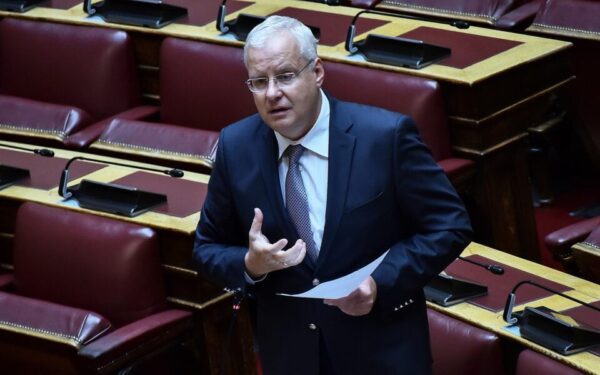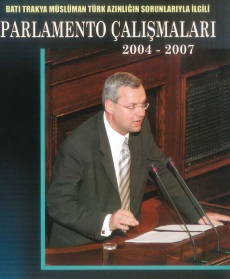‘I could not deny a human right to fellow citizens,’ says Greek Muslim MP

Ilhan Ahmet voted in favor of same-sex marriage but not for adoption. ‘I had an issue with adoption, because my view is that same-sex couples cannot fulfill that purpose,’ the PASOK MP for Rhodope says.
Stavros Tzimas 23.02.2024
In Islam, homosexuality is a grave sin that is believed to incur the wrath of Allah. In some strict Islamic countries, such as Saudi Arabia, Iran, Pakistan and Afghanistan, punishments such as flogging, stoning, and burning at the stake are prescribed. In Turkey, gender-affirming surgery has been legal since 1988, but gay people cannot marry, are not allowed to adopt children, are prohibited from donating blood and are exempt from conscription, as the Turkish Armed Forces define homosexuality as a “psychosexual illness.”
In Greece, the unauthorized muftis of the Muslim minority in Thrace had disapproved of the recent government bill – voted into law on February 15 – that established marriage equality, and in Parliament only one of the four Muslim MPs, Ilhan Ahmet of center-left PASOK, who represents Rhodope, defied the teachings of the Quran and the possible nagging of Muslim voters and voted in favor of marriage, but not adoption. The other three Muslim lawmakers from leftist SYRIZA and PASOK chose to abstain.
“The bill was definitely in a reformist direction, it was a big reform,” Ahmet tells Kathimerini. “Clearly, the party that I come from, as progressives, could not but vote for this bill. I am a religious person who believes in God, but not an extreme Islamist. Therefore, at this level, I did not have a dilemma of conscience because I have a different theological approach. But I had an issue with adoption, because my view is that same-sex couples cannot fulfill that purpose.”
‘I am a religious person who believes in God, but not an extreme Islamist. Therefore, at this level, I did not have a dilemma of conscience’
“But there is another parameter in my vote. As a person who wants a modern minority, which is close to the Western, liberal standards of societies, which claims its emancipation and the equality of its rights at all levels, I could not deny a human right to another group of our fellow citizens,” he continues. “With my stance, I want to send a message to the younger generations against fear, [in favor of] an inclusive society where everyone will defend their beliefs democratically and freely.”
Asked whether he believes that his vote reflects the sentiment of Muslim – and presumably conservative – voters, Ahmet responded that “a society, especially when it is a minority, cannot collectively be called conservative.”
“Religious sentiment concerns each person’s relationship with God. From then on, in a democratic country, every minority – religious, linguistic, ethnic, sexual etc – must be supported to maintain its otherness. Therefore, with this law, the government rightly took a step further in the protection of minorities. That’s why our minority in Thrace needs to be encouraged to highlight its otherness, not as a threat, but as [a sign of] the richness of Greek society,” he added.
For the Muslim society in Thrace “the subject [of same-sex marriage] was and remains a taboo,” Ahmet continues. “Of course, within the minority it was discussed in hushed conversations and with an accusatory tone by some extreme – political rather than religious – circles, who always want to take advantage of people’s beliefs in order to draw up a hardline policy.” Having openly clashed with the Turkish consul general in Komotini ahead of the general elections of 2023 and voted in favor of the marriage equality bill, does he feel that he is taking big political risks?
“I did not clash with any state, neither with Turkey nor with any other, as some of my opponents deliberately claimed, but with a certain consul who behaved in an insulting way toward an elected member of the Greek Parliament and the Greek people, and tried to manipulate and interfere with the will of the voters,” he replies. “I have been hearing the prediction that I will not be elected in the next elections for the last 20 years from my opponents in Thrace, and I would say that it’s wishful thinking on their part.”
‘Equal opportunities’
What major reform does the Muslim minority need? “Beyond the main minority rights (education, religion, associations etc) we must provide equal opportunities at all levels, so that the Greek state can take the next step and include citizens from the minority in the administrative structure, in politics and public administration,” Ahmet says. “Only in this way will a message be sent that, in this country, there are no divisions and everyone is selected only on the basis of their qualifications. Why shouldn’t there be a representative from the [Muslim] minority in the European Parliament, for example?”



